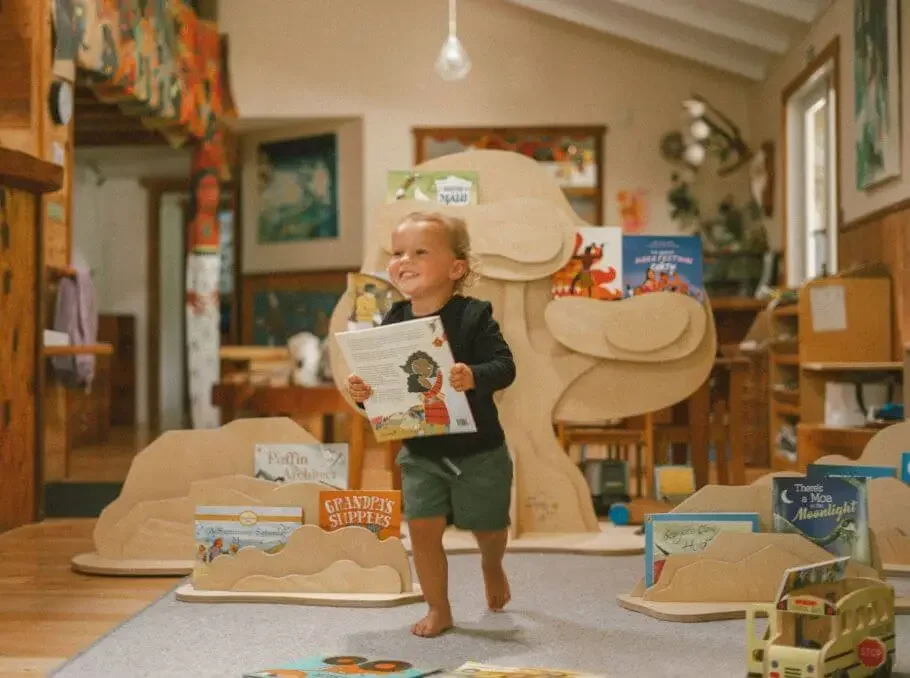Te Huringa ō te Ao Whānau Voice (2025)
Te Huringa ō te Ao Whānau Voices Project is a shift in how we listen, how we design, and how we honour whānau voices. The research is led by Point and guided by a Kaitiaki Steering Group. It uses a kaupapa Māori-informed, trauma-aware approach to uplift tāne, whānau, and community voice - exploring aspirations, service needs, and opportunities for culturally grounded, whānau-centred change on Waiheke Island
TYMS Fetal Alcohol Spectrum Disorder Project (2025)
Since 2014, Point & Associates has supported TYMS to grow its impact. In 2025, we are helping embed evaluation and reflective practice into their FASD initiative - turning their inspirational mahi into powerful learning and insight.
The Champions Initiative (2025)
Since 2019, Point & Associates has supported the Champions Initiative as its evaluation partner co-designing a multi-year strategy, leading Social Return on Investment studies, and helping shape a model that’s as impactful as it is inspiring.
Y-North Social Impact Measurement (2025)
Y-North is redefining how impact is measured across its services, shifting from output tracking to outcome-driven insights that reflect real change in the lives of its members. Through a collaborative, light-touch approach grounded in Vision 2030, the Y is building tools that empower staff, engage communities, and make social impact visible and actionable.
Devonport-Takapuna Community Development Funding Review (2025)
Eighteen months into a shift from event-based funding to grassroots activation, the Devonport-Takapuna Local Board is reviewing how well its community development model is fostering local leadership, inclusion, and connection.
Auckland Council Youth Voice (2025)
Youth voice groups play a vital role in shaping local decision-making and civic engagement. This project helps ensure that their contributions are recognised, supported, and amplified - so that rangatahi across Tāmaki Makaurau can continue to lead, influence, and thrive.
LEAD Interview Process (2025)
Annalise Myers is conducting a series of in-depth interviews with programme participants who work with LEAD, an organisation which supports conservation and climate change organisations across Aotearoa through tailored capacity-building initiatives.
Growing Collective Wellbeing in Whanganui: A Community-Led Response to Toxic Stress (2025)
Toxic stress affects too many tamariki - but even removing one stressor can make a big difference. In Whanganui, the Growing Collective Wellbeing Project is helping whānau build resilience, together.
Mana Whānau Evaluation (2025)
The Mana Whānau evaluation is capturing how intensive, in-home parenting support is helping keep tamariki safely with their whānau. Through hui, interviews, and shared learning, the process is surfacing what works - and what matters most.
Hōtaka Kura at the Auckland Writers Festival Evaluation (2025)
The Auckland Writers Festival’s Hōtaka Kura programme was evaluated to understand its impact on literacy, creativity, and student wellbeing. With thousands of tamariki and rangatahi attending each year, the findings show how storytelling can inspire, connect, and transform.
Christchurch Youth Hub Evaluation Infrastructure (2025)
The Christchurch Youth Hub is co-developing a youth-friendly evaluation framework that centres rangatahi voice, trauma-informed practice, and collaborative service mapping. It’s a model for how youth services can measure what truly matters.
User testing nau-mai.nz (2025)
The Ombudsman’s nau-mai.nz website - a digital resource designed to help care-experienced children and young people understand their rights and navigate the Oranga Tamariki complaints process - was tested by care-experienced rangatahi and their trusted adults to ensure it was clear, safe, and empowering.
Ford Foundation Strategy Visualisation
Nadine has been working with the Ford Foundation since June 2021 to visually represent the complex thinking behind the Foundation’s program strategies so they can be easily understood by a wide audience.
Mapping Youth Needs in Maungakiekie-Tāmaki and Puketāpapa (2025)
Rangatahi in Maungakiekie-Tāmaki and Puketāpapa shared what helps them thrive - and what’s missing. A new asset mapping and needs assessment highlights youth-led solutions, safe spaces, and creative pathways for change
Ethnic Communities Violence Prevention Programme Evaluation (2025)
The ECVP Programme supported ethnic communities across Aotearoa to prevent family and sexual violence. Researchers spoke with over 200 people from 17 communities in 20+ languages, using interviews, focus groups, surveys, and site visits to evaluate impact.
Little Libraries (2025)
With 100 bookshelves delivered to ECE centres in 2024, the Little Libraries project is lifting the status of reading for tamariki and whānau. This evaluation shows more reading, more engagement, and more joy - one book at a time.
Cultural perspectives on Abuse of Older People (2023-25)
This collaborative research with WaiRangahau and GravitasOPG explored how elder abuse is understood across diverse ethnic communities in Aotearoa, highlighting cultural perspectives, systemic barriers, and opportunities to shape more responsive, culturally grounded prevention strategies.
Hurihanga Initiative Evaluation
The Hurihanga Initiative is a whānau-led response to intergenerational harm in gang-connected communities, and was evaluated using developmental, kaupapa Māori-informed methods that prioritised reflective practice, relational insight, and whānau voice.
The Rānui Accord Community-Led Research (2024)
This “Amazing Race” style community-led research project found that the Rānui community hope for a safe, family-friendly environment, more parks, events, and improved emergency preparedness
Anglican Trust for Women and Children Evaluation (2024)
In 2024, ATWC partnered with Point & Associates to evaluate its Granger Grove residential programme - supporting mothers and tamariki through complex transitions. Through interviews, literature reviews, and thematic analysis, the project surfaced powerful insights into trauma-informed care, parenting, and systemic change. The final report will help shape a stronger, more sustainable programme for wāhine and their whānau.




















